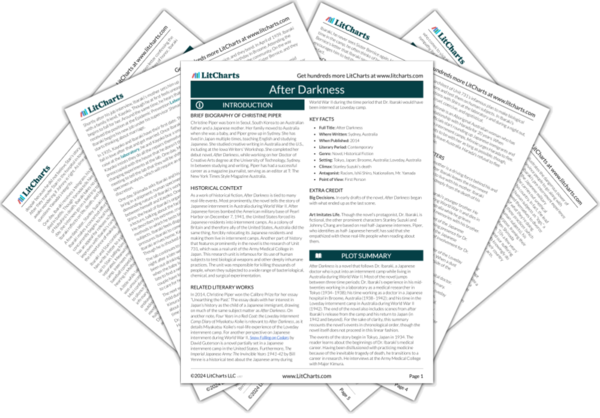As Dr. Ibaraki walks around the camp and sees different sections housing German and Italian internees, it becomes clear that Australia has interned not just Japanese residents but also people from other countries—countries that opposed the Allied powers during World War II. What’s more, the fact that the Japanese, German, and Italian residents are separated from each other hints at the internal division within the camp itself. This is a division that Ibaraki will most likely have to reckon with as he navigates life in the camp. Lastly, readers can intuit from Nobuhiro’s involvement in the Japanese army that Ibaraki has a personal connection to the war and perhaps even to Japan’s nationalist agenda.
